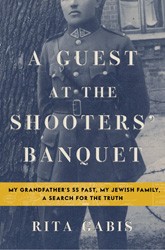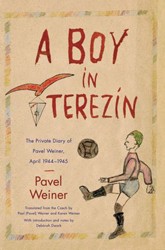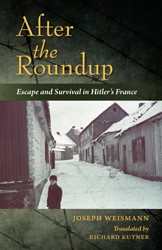By
– June 15, 2012
The further we get from the Holocaust, the more the memoirs increase. It seems to be an imperative of descendants to keep memories of their family constant, to not relinquish these loved and once vibrant people nor allow the trials they experienced to disappear into the miasma. Some memoirs exist, therefore, mainly to provide continuity for future generations or to furnish proof of the Shoah. Others, beautifully written, read like fine fiction; a few offer insights that are applicable to the larger population, uncovering a new phenomenon as a result of the writer’s investigation; still others are intended to teach as well as to remember…”in sunshine and in shadow.”
The Rothmans and the Burgers had lived happily, productively, and comfortably in Uzhorod, a small town in the Karpathian Mountains, for five generations. After the Nazi incursion and increasing harassment, they began their flight, hiding with relatives, in attics, and cellars, until they were caught and imprisoned separately. Ultimately they reached Budapest and were saved by Raoul Wallenberg. Dr. Goodkin is a Holocaust speaker for all levels of schools from elementary to college. In addition to recounting her story, she stresses to the students that “the Holocaust is not just past history. Ethnic cleansing is all around us — the torture, suffering of innocents in the name of racial, religious, or ethnic purity.” Continuing in this vein she enjoins students “to remember the lessons of the Holocaust and work hard to keep it from happening…You certainly have your work cut out for you.” This well written, straightforward history of the author and her family’s life during the Holocaust years culminates with a description the many speaking engagements and teaching methods she employs and the work of the Holocaust Center of the Richard Stockton College.
The Rothmans and the Burgers had lived happily, productively, and comfortably in Uzhorod, a small town in the Karpathian Mountains, for five generations. After the Nazi incursion and increasing harassment, they began their flight, hiding with relatives, in attics, and cellars, until they were caught and imprisoned separately. Ultimately they reached Budapest and were saved by Raoul Wallenberg. Dr. Goodkin is a Holocaust speaker for all levels of schools from elementary to college. In addition to recounting her story, she stresses to the students that “the Holocaust is not just past history. Ethnic cleansing is all around us — the torture, suffering of innocents in the name of racial, religious, or ethnic purity.” Continuing in this vein she enjoins students “to remember the lessons of the Holocaust and work hard to keep it from happening…You certainly have your work cut out for you.” This well written, straightforward history of the author and her family’s life during the Holocaust years culminates with a description the many speaking engagements and teaching methods she employs and the work of the Holocaust Center of the Richard Stockton College.
Marcia W. Posner, Ph.D., of the Holocaust Memorial and Tolerance Center of Nassau County, is the library and program director. An author and playwright herself, she loves reviewing for JBW and reading all the other reviews and articles in this marvelous periodical.





